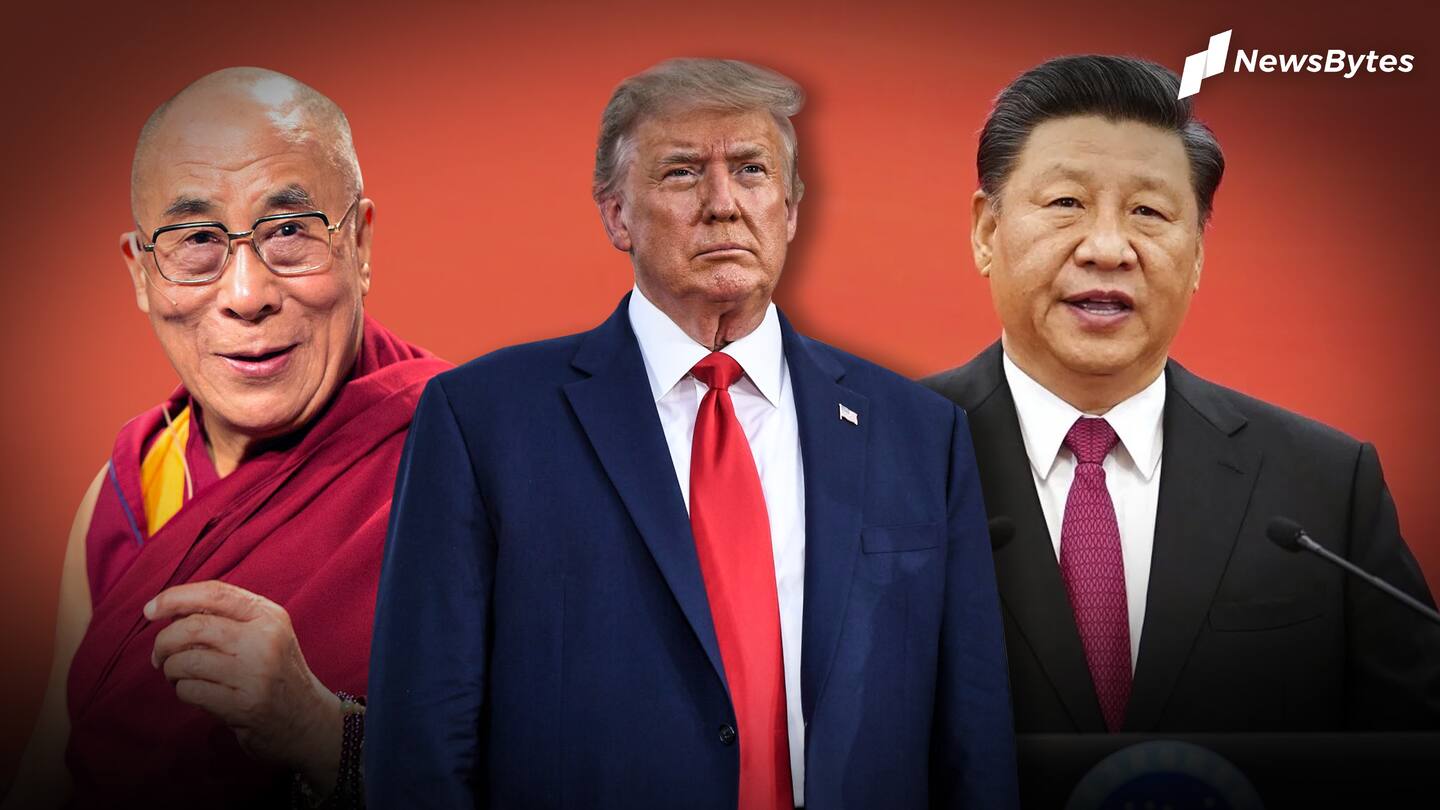
Trump signs law on Dalai Lama's succession, Beijing furious
What's the story
During his last days at office, outgoing United States President Donald Trump has taken a decision that has left his Chinese counterpart Xi Jinping miffed.
On Sunday, he signed a bill that allows the establishment of a US consulate in Tibet's main city, Lhasa, into a law.
The law also gives Tibetans, and not China, the sole responsibility of choosing the next Dalai Lama.
Context
China calls Tibet its own territory despite objections
To note, China insists that Tibet is a part of its territory and it has worked for years to ensure other superpowers don't recognize it as a separate entity.
In fact, the current Dalai Lama had fled to India in 1959 amid an abortive uprising against the Chinese rule in his Himalayan homeland.
Unsurprisingly, the regime views him as a "separatist" working to split Tibet from China.
Law
US plans to coerce China into opening American consulate
Last week, much to China's surprise and shock, the US Senate passed the Tibetan Policy and Support Act of 2020, which re-authorizes various programs linked to Tibet.
The law allows assistance to non-governmental organizations supporting Tibetan communities in Tibet and also states that no new Chinese consulate can open in the US unless Beijing allows the setting up of an American consulate in Lhasa.
Dalai Lama
Only Tibetan Buddhist faith community can choose next Dalai Lama
The law also gave new responsibilities to the Office of the US Special Coordinator for Tibetan Issues.
Now, the department has to build international coalitions "to ensure that the next Dalai Lama is appointed solely by the Tibetan Buddhist faith community," reports PTI.
Further, the act underlines that sanctions must be put on Chinese officials who interfere in the succession process.
History
Years ago, China abducted 'recognized' Panchen Lama, named its own
China's interference in matters related to the Tibetan Buddhist community makes this new law extremely important.
In May 1995, China allegedly abducted Gedhun Choekyi Nyima, who was recognized as the Panchen Lama by the current Dalai Lama. The Panchen Lama's spiritual authority comes second only to Dalai Lama.
After kidnapping Nyima when he was merely six years old, China appointed its own Panchen Lama.
Reaction
US was told to not interfere in China's internal affairs
Last week, when the legislation was approved, the spokesperson for the Chinese Foreign Ministry, Wang Wenbin, had said, "We urge the US side to stop meddling in China's internal affairs and refrain from signing into law these negative clauses and acts, lest it further harms our further cooperation and bilateral relations."
Taking the same tone, the ministry said today it rejected the legislation.
Details
'Chinese government determined to safeguard national sovereignty'
Zhao Lijian, another spokesperson of the Chinese foreign ministry, told the US not to put into effect the sections of law which "target" China.
"The determination of the Chinese government to safeguard its national sovereignty, security, and development interests are unwavering," he said.
In sharp contrast to China's stand, Lobsang Sangay, President of Central Tibetan Administration in Himachal Pradesh's Dharamshala (India), welcomed the law.
Quote
This new legislation sends a powerful message
"This legislation sends a powerful message of hope and justice to the Tibetans inside Tibet and bolsters US support for the protection of Tibetan people's religious freedom, human rights, environmental rights, and exile Tibetan democracy like never before," Sangay said.